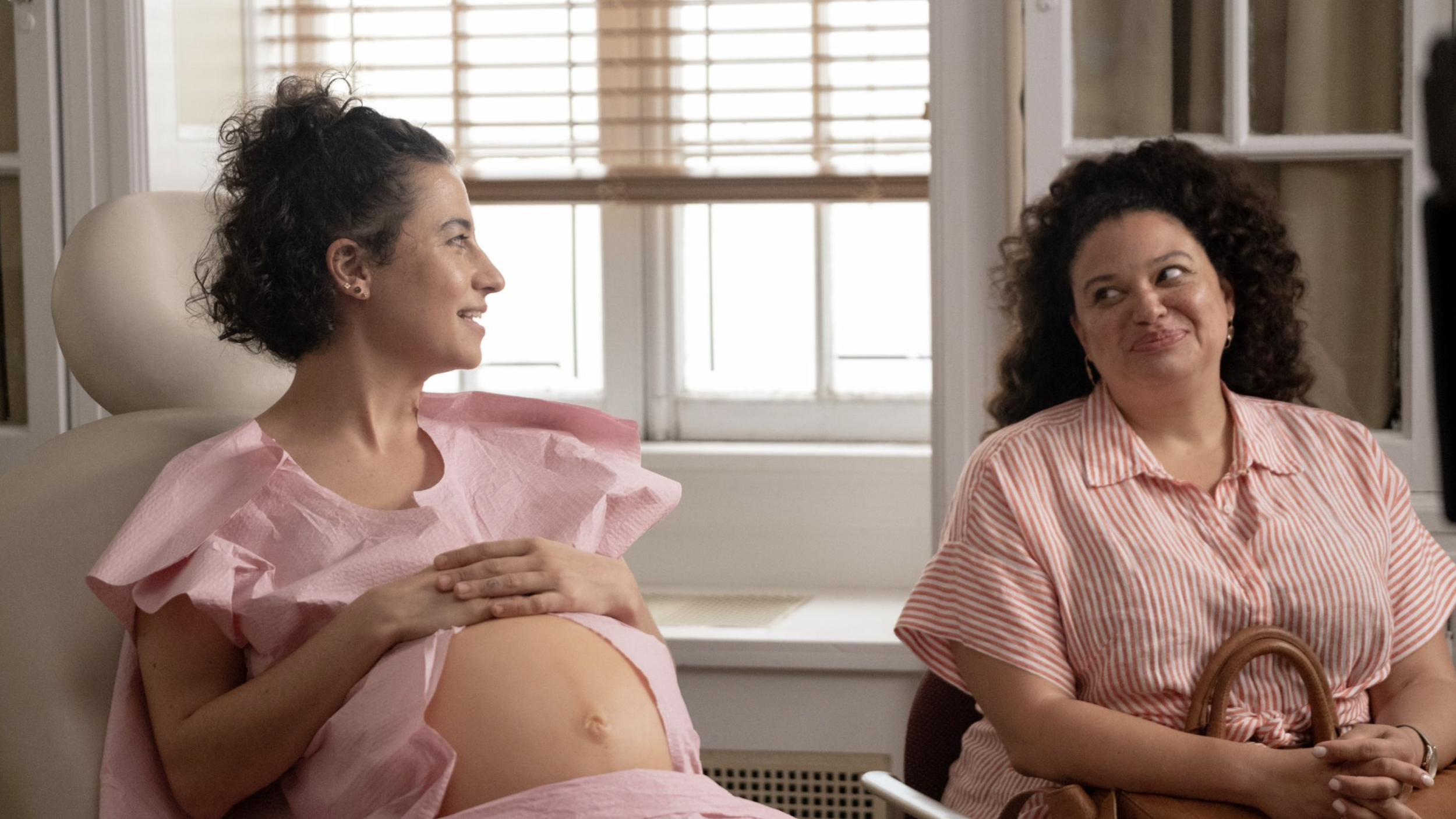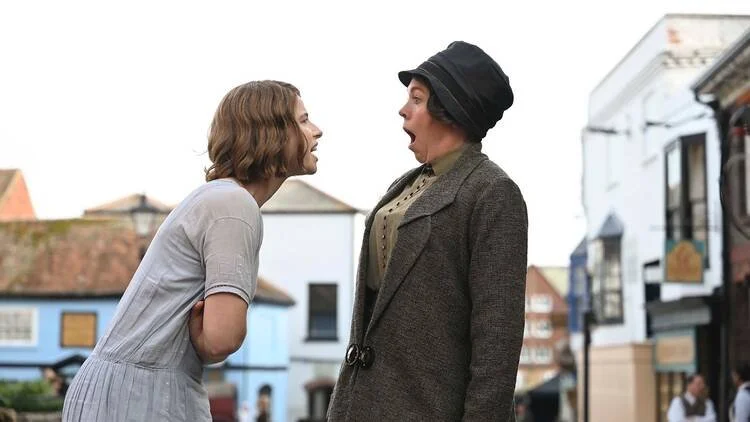HIT MAN
Directing: B+
Acting: B+
Writing: A-
Cinematography: B-
Editing: B+
It’s been a dismal June so far for theatrical wide releases, and I’ll have to include the end of May in that: May 31 had no major movie releases at all, less because of the inevitable shift of moviegoing habits in a post-covid world—although that’s certainly part of it—than because of countless postponements after last year’s writer and actor strikes. And for the record: any movie studio crying about the sad state of box office returns so far this year has only themselves to blame, as they could have accepted the unions’ quite reasonable demands from the start instead of digging in their heels for months in 2023.
So, here we are. This weekend, there actually are theatrical wide releases—a couple of them—it’s just just that I don’t personally have any interest in them. If you thought you might come here for my take on Bad Boys Ride or Die, you were mistaken. (I don’t flatter myself that any of you particularly did, mind you. Still, I’d have to be actually getting paid for it to write a review of that movie, in which I would likely write much about my undampened distaste for Will Smith. And even if Smith had never slapped Chris Rock at the Oscars, I’d have little faith that his new film was any good, given 2020’s Bad Boys for Life certainly wasn’t.) The other is The Watchers, by Ishana Shyamalan, which is clearly “M. Night Lite,” and: no thank you.
What to do in the absence of anything worth seeing in theaters, then? Something I haven’t done in five months: turn to a streamer—specifically, Netflix—for a significant release to watch and review. And releases like this going to streamers instead of theaters, at least some of the time, is clearly here to stay. There is no question that five years ago, a film starring Glen Powell, cowritten by Glen Powell and Richard Linklater, and directed by Richard Linklater—this is the guy who gave us Dazed and Confused, Before Sunrise, School of Rock, and Boyhood—would have gotten wide release in theaters. It was indeed five years ago when his last live action narrative feature got a wide release, and that one wasn’t even particularly good.
Admittedly I found something immediate to get past about Hit Man—which was originally set to be released around the same time as The Killer (also on Netflix!), ostensibly similarly themed but a very, very different movie. The visual vibe of the movie, I can’t quite put my finger on it precisely, except to say that it feels a little . . . low-rent. A bit like a “TV movie,” to be honest. And yet, as the story unfolds, it somehow fits: both as a Richard Linklater film in particular, and as part of the film’s knowingly yet deeply subtle cornball tone.
Unlike The Killer, and hundreds of other films before it, Hit Man openly acknowledges that “hit men” as we think of them in pop culture are a myth: “Hit men don’t really exist,” says Powell’s title character, Gary Johnson. But Gary has been hired by the New Orleans police department to pose as the “hit men” would-be murderers expect to see, in sting operations to arrest them before the kill can actually happen. And this is a side gig: Gary’s day job is as a psychology and philosophy professor, scenes of which provide fertile ground for scenes exploring the nature of identity, which fall just short of metatextual.
It takes a while for the real crux of the story to take hold: after helping arrest several would-be criminals, Gary, in one of the many disguises he’s thrown himself into with this job (many of which are subtly but very effectively funny), comes across a young woman who is meeting him about killing her asshole husband. But this time, seeing a young, beautiful, and seemingly very vulnerable woman named Madison (all of it expertly played by Adria Arjona; hopefully with a great career ahead of her), Gary—as “Ron”—convinces her to change her mind, much to the consternation of the NOPD.
There are too many fantastic plot turns that ensue from there, so I won’t spoil them. Just do yourself a favor and watch the movie on Netflix. Viewers should be forewarned about one thing, though: I truly don’t know why anyone is listing this movie under “action” as a genre. Crime and comedy, sure; but action—there is none to speak of in this movie. If you have any familiarity with Richard Linklater whatsoever, you’d know not to expect it, as his films are all constructed around dialogue. We see a literal gun onscreen maybe once, and in neither case does it even get fired.
And yet: people do get killed in this movie. This is the genius of Richard Linklater, if you know how to appreciate his specific brand of art. Hit Man has some uniquely clever story turns, if not outright plot twists, and they are quite satisfying. He has an impressive knack for economy of storytelling, particularly on a budget: consider the police officer Jasper (Austin Amelio), a thorn in the NOPD’s side due to his suspension after violent excessive force on some teenagers, an incident that was caught on tape. This information is only ever revealed through well-written dialogue you barely even register as expositional, and (thankfully) we never see the video footage—although the Police Chief does hold up his phone at one point while talking about it, while his phone isn’t even on.
Jasper inevitably becomes a crucial plot point himself, worming his way in between Gary and Madison. Jasper is a deeply annoying douchebag of a man, which is a credit to how Austin Amelio plays him, which makes his fate by the end of the film, thematically complex as it is, deeply satisfying. Just about all the performances are great in Hit Man, but none are as great as Glen Powell’s, an undeniably handsome man who manages to be believably dorky as a professor and then convincingly hot as “Ron,” who is the guy Madison is into. Still, the montage of character disguises Gary takes on is great fun.
Hit Man on the whole is just a fun hang, an impressive achievement for a film in which little more than talking and plotting actually takes place onscreen. I suppose we could argue that’s what makes this perfect for a streamer release—there are no special effects and no action set pieces to make anyone insist it should be seen on the big screen. I would counter that there’s something to be said for seeing a fun movie of any sort with an audience, where there can be a sense of collective enjoyment. On the other hand, no theatrical release would have the breadth of reach that Netflix now does, and it does make me happy to think how many people will see, and likely enjoy, this movie.
This is the most action you’ll see in this movie—but it’s still really fun I swear!
Overall: B+










